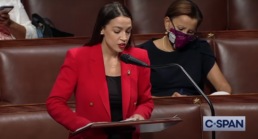You know those “walk and talk” moments from the TV show The West Wing? When two political staffers are walking down a hallway and — in the space of a few minutes — decide to launch an airstrike or get rid of the penny?
That’s a real thing.
In politics, issues move fast. You can come back from lunch (that is, if you can get away from your desk) and find out a cabinet minister has resigned, there’s been a shooting and somehow the world has changed. With a single media story, projects you’ve worked on for months can get wiped out. Things that other people read as “the news” are part of your workday.
And when that happens, no one gets upset. No one sheds a tear for the communications rollout they worked on that’s become irrelevant, or goes to the wall for the multimillion dollar proposal they were fighting for that got pushed aside. Staffers clear their desks and get to work, because there’s only one deadline that matters, and that’s the election.
The always-looming specter of an election gives political staffers (and most of us at LRC were staffers at one time or another) a kind of focus that a lot of organizations lack. When your job is up for renewal every four years, you become singularly obsessed with doing those things — and pretty much only those things — that are consistent with your narrative, effective, timely and relevant. If something you want to do or say fails those tests, it doesn’t happen. You are always guided by a narrative that everyone on the team understands.
Having that kind of North Star also makes political staff adaptive and resilient. Regime change in the Middle East? Not a problem — you adapt. Unemployment skyrockets? Not a lot you can do — so you buckle up. Leader resigns and throws your government into a leadership contest? Pick a candidate and start campaigning.
These days, that kind of adaptability and resiliency is in high demand. The COVID-19 pandemic has upended the way all of us work, uncovered massive vulnerabilities in the way we live our lives, and forced us to reassess our priorities.
Organizations that don’t have a compelling sense of who they are, why they exist and who they serve don’t deal well with change.
A few weeks ago, someone released a supercut of all the COVID-19 commercials. It showed that all the COVID commercials are exactly … excruciatingly … the same. And while it’s funny/sad that massive marketing firms can’t come up with better messaging than a vanilla lump of “we’re all in this together” paired with a beige blob of “we’re here for you,” it’s not really the marketer’s fault.
Ads like these only get approved when organizations don’t know who they are, when they don’t know how to be authentic or when they are so worried about making a mistake, they play it safe.
If you have a North Star, you know who you’re speaking to. If you know who you are speaking to, you know what to say. And if you know what to say, you know how to be real.
It shouldn’t matter what curveballs the global economy or a global pandemic throws at you: if you understand your story, you can’t get knocked off message.
That’s the lesson LRC learned in politics: know your story. Know your audience. Be real.
Lloyd Rang
President and Narrative Lead for Curious Public. Lloyd is one of Canada’s leading communications and crisis management experts.


